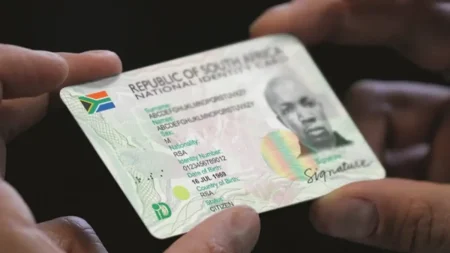Navigating child maintenance in South Africa can be a challenging journey, especially for fathers who may feel uncertain about their rights and responsibilities. It’s common for fathers to feel as if the system is stacked against them, especially in instances of separation or divorce, but it’s important to know that the law aims to balance the needs and rights of both parents while keeping the child’s best interest at heart.
This article will provide a clear, accessible guide on fathers’ rights in child maintenance, aiming to clarify misconceptions, explain the legal frameworks, and offer practical advice to help fathers understand and assert their position.
Fathers’ Rights in Child Maintenance
There’s often a misconception that fathers have fewer rights than mothers when it comes to child maintenance and custody. However, South African law is clear that both parents are equal in the eyes of the law regarding financial responsibility for their child. Fathers, like mothers, have the right to be involved in their children’s lives, provided it’s in the child’s best interest.
Here’s a breakdown of key areas where fathers have rights:
1. Right to Fair Assessment of Financial Contributions
- The court considers the income and expenses of both parents, not just one. If you feel your maintenance contribution has been calculated unfairly, you have the right to request a reassessment based on updated financial information.
- Fathers can request a review of their maintenance obligations if their financial situation changes, such as through job loss, salary changes, or other economic impacts. Courts are bound to take these factors into account.
2. Right to Participate in Decisions About the Child’s Upbringing
- Fathers have the right to input into key decisions about their child’s life, including education, medical treatment, and religious practices. While this right is separate from financial support, it underscores a father’s role beyond just providing maintenance.
- In cases where the mother is the primary caregiver, fathers can still seek shared parental responsibilities through the Family Advocate’s Office.
3. Right to Apply for Custody and Visitation
- Custody arrangements are separate from maintenance obligations. Fathers can apply for custody or increased visitation rights irrespective of maintenance payments.
- If a father believes he can provide a more stable or supportive environment, he has the legal right to seek primary custody or joint custody.
4. Right to Seek Legal Assistance or Representation
- Fathers have the right to seek legal counsel when dealing with child maintenance issues. While this may seem financially burdensome, there are organizations and legal clinics in South Africa that offer free or affordable services to fathers in need of assistance.
5. Right to Appeal Against Unfair Decisions
- If a court ruling seems biased or unfair, fathers can appeal for a reassessment. The legal system provides avenues to contest decisions on child maintenance or custody that may not align with the best interests of the child.
Responsibilities Alongside Rights
Along with these rights, fathers have a set of responsibilities to ensure the child’s well-being is prioritized. Fulfilling these responsibilities is key to maintaining a balanced relationship with both the child and the legal system.
1. Prompt Payment of Agreed Maintenance Amounts
- Once a maintenance amount is set, it’s important for fathers to make payments on time. Delays in payments can lead to legal action and further disputes, impacting the father’s legal standing.
2. Maintaining Updated Financial Records
- Fathers should keep records of their financial situations up to date and transparent. In the event of a financial change, such as a loss of income, providing accurate records can help adjust the maintenance order accordingly.
3. Being Present in the Child’s Life
- Child maintenance goes beyond financial support. Fathers who actively participate in their children’s lives often find their rights more readily acknowledged by the courts and other authorities.
Child Maintenance and Custody: Understanding the Difference
One common misunderstanding is that paying child maintenance automatically grants custody or visitation rights. Legally, maintenance and custody are separate matters:
- Maintenance: This is a financial obligation and does not automatically translate to physical custody or visitation rights.
- Custody: Custody and visitation rights involve the time and influence a parent has with their child, and they are determined based on the child’s best interests.
While maintenance payments help demonstrate a father’s commitment to the child’s well-being, custody decisions are based on other factors, such as the child’s emotional and physical needs, and the stability of each parent’s living environment.
Common Challenges Fathers Face in Child Maintenance Cases
Understanding the legal system and addressing challenges early on can help fathers better navigate child maintenance issues. Here are some common challenges and tips to overcome them:
1. Perceived Bias in the Legal System
- Many fathers feel that courts favour mothers, especially in custody and maintenance cases. However, South African law promotes the child’s best interests rather than one parent over another. Working with a family advocate or a legal representative can help ensure a father’s rights are acknowledged.
2. Unilateral Decisions by the Other Parent
- If the mother makes major decisions about the child without consulting the father, the father can approach the Family Advocate’s Office to mediate. This service can assist in establishing fair agreements and ensuring both parents have an equal say.
3. Difficulty Adjusting Maintenance Orders
- Adjusting maintenance amounts can be challenging, especially if circumstances change suddenly. Fathers can apply for a modification by submitting proof of the change in income or financial circumstances to the court.
4. False Allegations Affecting Custody or Visitation
- In cases of false accusations, fathers should seek legal assistance immediately to prevent damage to their relationship with the child and reputation. Courts require substantial evidence, so keeping detailed records of interactions can be beneficial.
Practical Steps to Uphold Your Rights
Understanding your rights is the first step. Here’s how fathers can take practical steps to protect and exercise these rights:
- Document Communication: Keeping a record of communication with the child’s other parent, as well as with legal representatives and family advocates, helps support your case in court.
- Seek Mediation Early: Mediation can help prevent long legal battles. Fathers can approach the Family Advocate’s Office to negotiate fair terms for both maintenance and custody.
- Use Legal Support Systems: Many organisations, such as Legal Aid South Africa, provide affordable or free legal assistance, particularly for fathers who may face financial constraints.
- Engage in Co-Parenting Strategies: Cooperative parenting often strengthens a father’s case for fair maintenance and custody arrangements. Demonstrating a commitment to co-parenting can positively impact a father’s standing in court.
Support Resources for Fathers
- Family Advocate’s Office: Assists with mediation and reaching amicable agreements between parents.
- Legal Aid South Africa: Provides legal assistance to those who cannot afford it, including fathers navigating child maintenance issues.
- Department of Social Development: Offers programs and support for single parents, including fathers.
- Community-Based Support Groups: Many community groups provide peer support, advice, and resources for fathers going through maintenance or custody battles.
Understanding fathers’ rights in child maintenance is crucial for fostering a fair, balanced, and supportive environment for children and parents alike. By knowing your rights and responsibilities, you’re better equipped to contribute positively to your child’s life. Remember, the law in South Africa is designed to protect the child’s best interests and ensure that both parents contribute to their child’s welfare.
Related Content:










